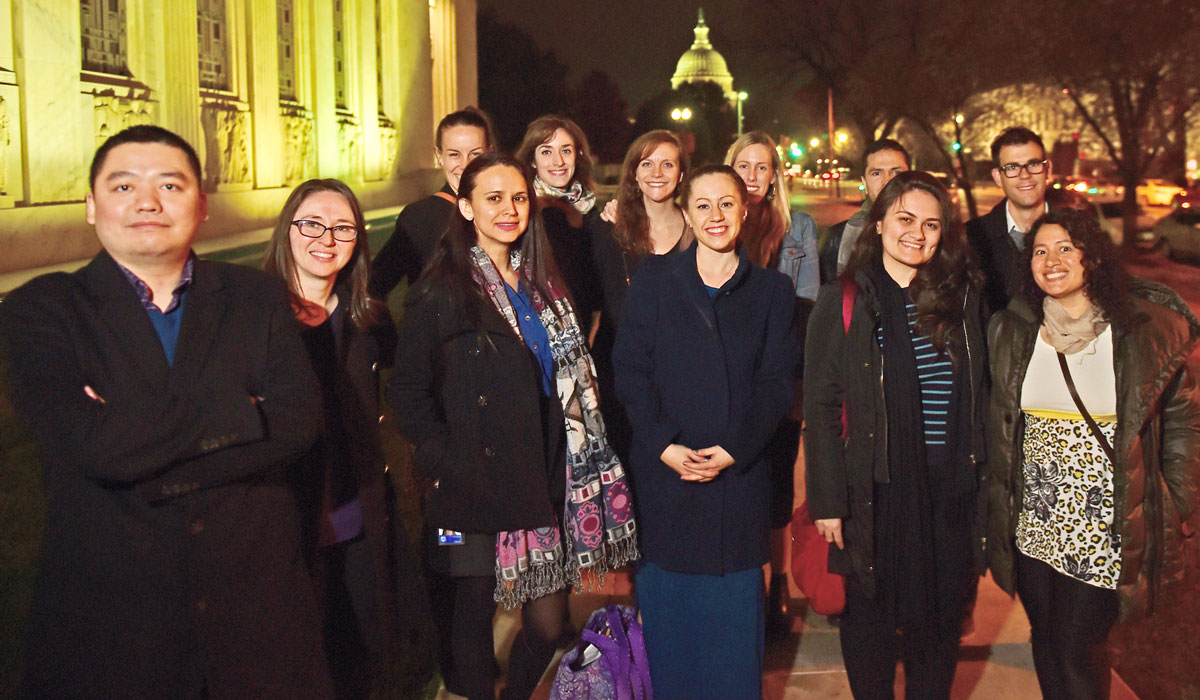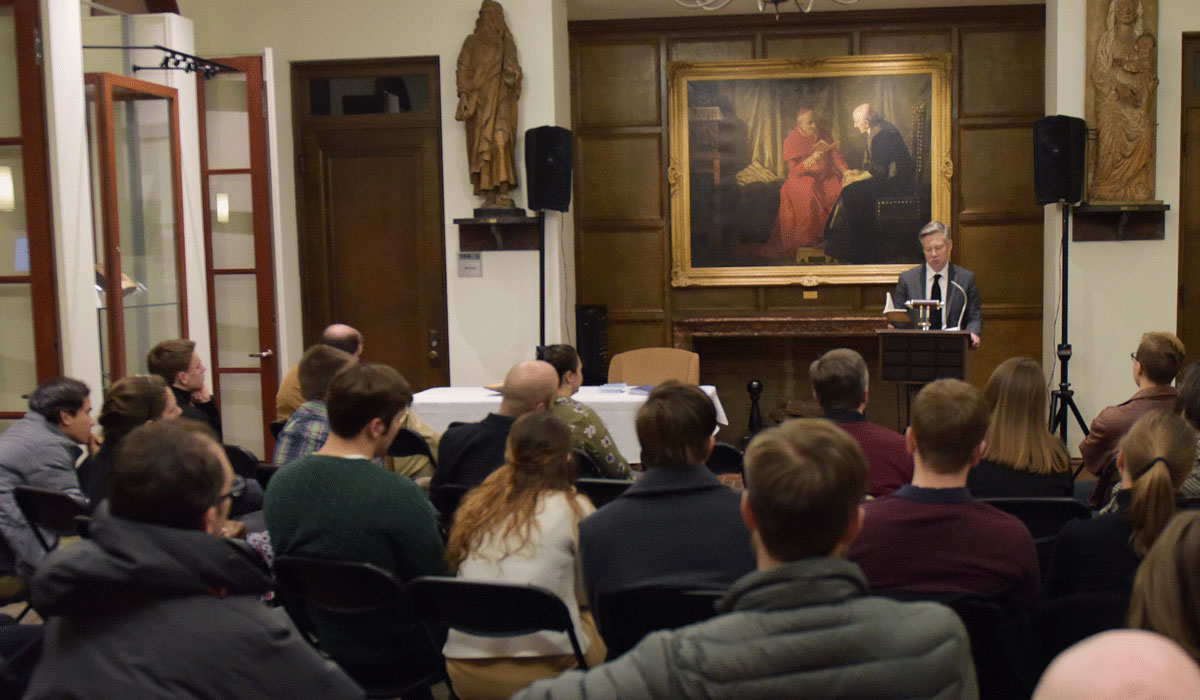

On a Wednesday evening early in the fall semester, the small group gathered on the sunny porch of the Marist Annex is eager to delve into Geraldine Brooks’ novel Year of Wonders. Someone provides historical context for the work by describing the standard of living and life expectancy in 17th century England in which the novel is set. Another participant explains how and to what extent women during the Renaissance might attain a degree of independence.
This is not a class. It’s a book discussion sponsored by the Catholic Contemporary Writers, an initiative of graduate students in the English department to raise awareness and appreciation of works by living Catholic writers and to cultivate conversation about the future of the Catholic literary imagination.
Founded in 2015 as a monthly reading group for graduate students, the book discussions now draw graduate students from a variety of disciplines as well as faculty, staff, alumni, and members of the local community. CCW has also brought more than 20 Catholic poets, fiction writers, filmmakers, and scholars to speak on campus, including prominent figures such as poet and former chairman of the National Endowment of the Arts, Dana Gioia. The group has curated exhibits in collaboration with Mullen Library and now produces a podcast. In September, Jessica Schnepp, the founder of CCW and a doctoral candidate in the English department and several other CCW members discussed the CCW reading group at the 2019 Catholic Imagination Conference.
While the CCW could be classified as an “extracurricular” activity, for Schnepp and other CCW members, it’s been an essential part of their education:
“Organizing CCW events for the past four years has expanded for me what it means to be an academic,” Schnepp explains. “I am excited about the multitude of real-world applications of the English Ph.D.”

At Catholic University there is a long tradition of graduate students creating a rich intellectual culture beyond the classroom. The University was founded as a graduate institution, dedicated to research and training graduate students to conduct research. For 130 years, graduate students have been integral to creating a vibrant intellectual life at the University.
This past spring graduate students in Early Christian Studies, the School of Theology and Religious Studies, and from the Dominican House of Studies founded the Graduate Symposium on Patristic Reception in a Modern and Postmodern Age. Sponsored by the Center for the Study of Early Christianity, the symposium brings together graduate students from the Center for the Study of Early Christianity and the schools of theology and religious studies, philosophy, and arts and science at Catholic University—as well as graduate students from neighboring institutions—to discuss the early Church and its reception from the late-nineteenth century to the present day. Last semester the symposium hosted two graduate student presentations on contemporary scholarship on early Christianity as well as a conversation with the eminent patristic scholar Robert Louis Wilken.
The goal of the Symposium, explains Carl Vennerstrom, a doctoral student in Early Christian Studies and one of the founders of the Symposium, is to “learn what other students were thinking and studying.” By limiting the discussion to graduate students, the Symposium aims to “provide a greater sense of freedom to the discussion. Try as we might, it is always easier to be frank with your peers.”
For many graduate students at Catholic University, collaboration and conversation with fellow graduate students is — alongside independent research and stellar faculty — an essential component in their formation as scholars.
When Atlas Xu came to Catholic University to study American history, he did not expect to benefit from his peers; he studies U.S. history while many of his peers concentrate on the medieval period.
“At first, I thought it was a weakness.... But gradually, I found it’s not a problem. ... Everybody in this discipline, no matter what period you do, what kind of story you are telling, what kind of topic you are working on has a certain set of tools and you have a basic sense of what is a meaningful story to tell; what kind of argument would work ... Historians that have good training, as we do at Catholic ... will know if this will work as a paper that will put your paper in conversation with what others have done in the field.”
Xu has twice presented papers at the history department’s Graduate Student Writing Workshops, in which graduate students present a paper or a chapter of their dissertation to their peers. Another graduate student prepares a response to the presentation and the cohort offers advice about methodology, evidence, and structure. While the workshops are not mandatory, they are well attended because there is a strong culture of support in the department. “It’s reciprocal,” Xu observes. “If you want to be helped you have to help.” Xu himself has been the commenter twice for other students’ presentations and found it helpful to spend time outside his own research area:
"I commented on a paper on the British empire in 1920s Iraq, which I don’t know anything about. But it was such a learning experience, and so enjoyable to read. And it’s part of your training as well, that you learn to think outside your own box, outside your own field."
Across schools and disciplines at Catholic University, the invaluable element that graduate students bring to their programs is a shared curiosity. “Everyone’s willing to share and everyone’s willing to listen,” Xu explains, “and asks meaningful but also interesting questions about each other’s research and progress, but also about each others lives. The fact that we have a platform to share this curiosity makes it all the more efficacious.”